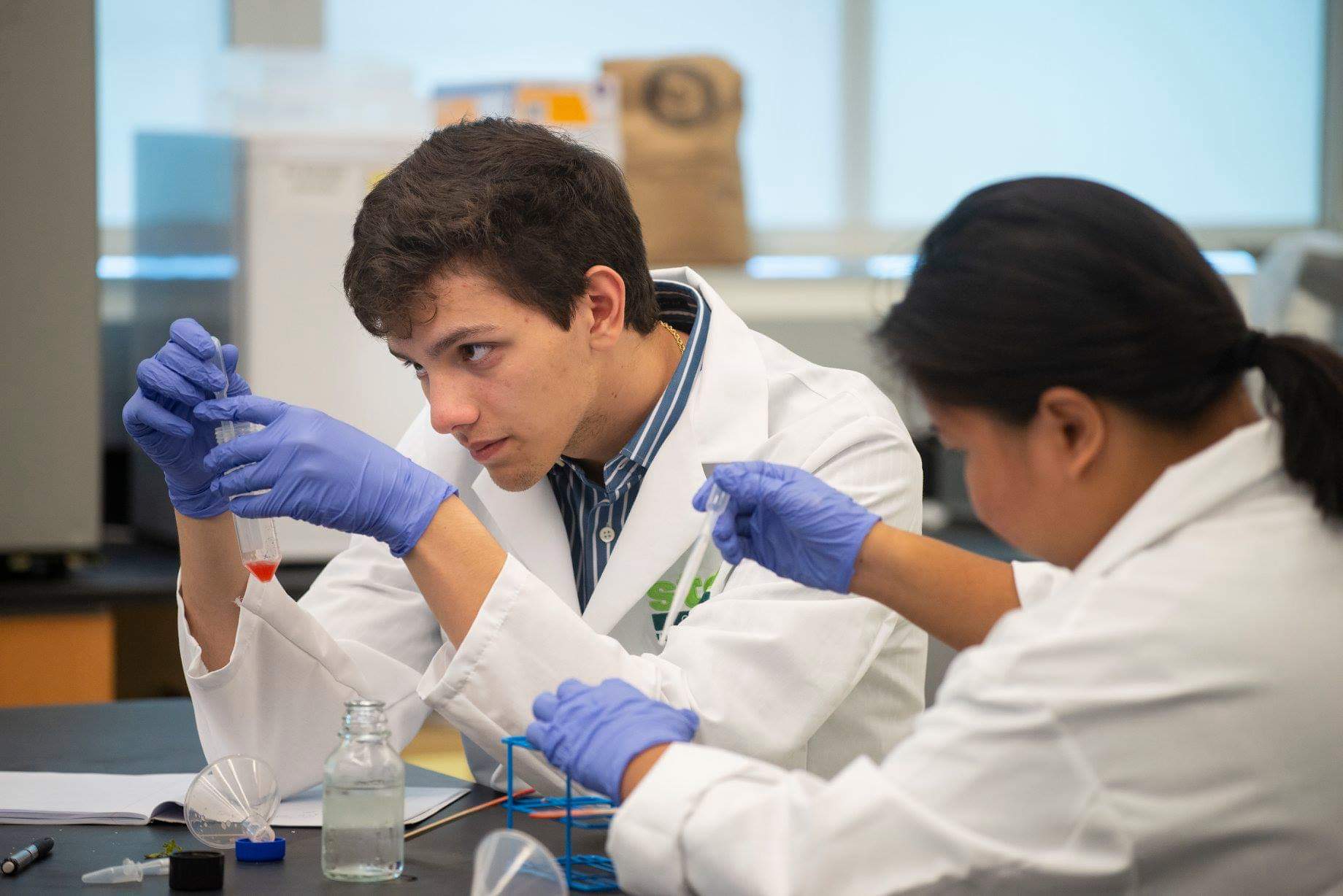USF student awarded virtual research opportunity amid unprecedented times

Second-year mathematics and microbiology student Alexander Mercier was selected as one of 10 people in the entire country to learn from renowned researchers at the Santa Fe Institute (SFI) in New Mexico this summer.
However, because of the COVID-19 pandemic, his once-in-a-lifetime opportunity faced some virtual changes.
The institute ranked 25th among the world’s “Best Transdisciplinary Research Think Tanks” in the 2018 edition of the Global Go To Think Tank Index Reports from the University of Pennsylvania.
“The number of applicants vary from year to year,” Education Program Manager Carla Shedivy said. “This year we had 259 students submit applications. Only 10 undergraduates were offered a position.”
Some of the institute’s well-known researchers include the late theoretical physicist and Nobel laureate Philip Anderson and president of the SFI and evolutionary biologist David Krakauer.
Besides learning from notable scientists, the program will allow Mercier to research a topic of his own interest while having the SFI resources and faculty at his disposal to further his education and experience in the field of complex systems research.
The now Virtual Undergraduate Complexity Research (v-UCR) program will be carried out June 8 until Aug. 14.
Even given the circumstances, Mercier said the virtual changes are not a burden to him.
“While I am disappointed I will not be at the SFI site in New Mexico, I am incredibly grateful that the program is still proceeding over the summer,” Mercier said. “Most of my work should be easily transferred offsite.”
Though not in person, Mercier said he will still receive guidance virtually via phone calls, as well as access to other resources the SFI has to offer.
He said he applied to the v-UCR program hoping to be accepted but not expecting much. To his delight, he was selected to participate in the program.
“At the end of the program, I present a research project to the faculty and publish a paper with a research mentor with the project being of my own creation,” Mercier said.
Instead of presenting in front of faculty like previously expected, the presentations will take place remotely via videoconference.
Mercier said his first week with his mentor will include choosing a research topic.
He is deciding between two different topics, but both are related to studying relationships and drawing models to indicate the subjects’ associations to one another.
“My motivation is responsible modeling,” he said. “In order to do that, the principles at SFI are indispensable and very exciting to look at, so the SFI combines my love for mathematics and my love for responsibility in terms of this type of science because they really want to understand what is happening.”
He explained that the first option is broader, essentially looking at a social network and mapping out the relationships between two people to determine their roles in a group.
“I’m caught between network science, specifically something called sparsification of network through algorithmic complexity,” Mercier said. “The other is the same thing in network science, but taking principles from counter terrorism studies … It’s called dark networks.”
The second option focuses on social networks. Specifically, he said it looks at all the information available but still tries to figure out the relationships between them.
“Network science becomes a novel way of mapping these relationships,” he said. “It is not the only way, but it is an interesting way, and it is newer than most, so there is still a lot of ground to be covered.”
Mercier is no stranger to research projects, as he works under Dr. Andrew Kramer in the labs at USF.
“I am an undergraduate researcher at the Kramer Ecology Lab, which is located in the SCA [Science Center] building on campus,” he said. “The part I work at is computer programing. We do a lot of computer simulation, building models and taking in data.”
He aspires to one day get a Ph.D. in theoretical mathematics and become a professor as well as continue to do research.
Mercier said this research opportunity is indispensable in helping him achieve his goals.
“You can give someone a pencil and teach them how pencils are made, but it is a very different education to teach them how to draw,” Mercier said. “Classes and such can give you as many pencils as you want, but you have to start using them and that is where, in my mind, your primary education comes through.”
Though Mercier is disappointed he can’t be in person at the program, he said he’s grateful that he can still participate virtually.
“The element I have been most looking forward to remains unchanged,” Mercier said. ”[I will get] to know the incredible network of people SFI encompasses and be able to perform exciting and novel research within that context.”







